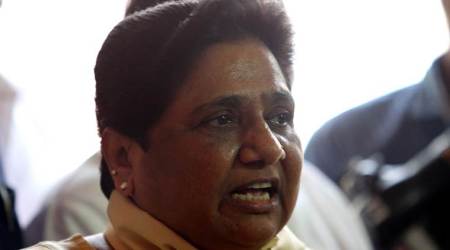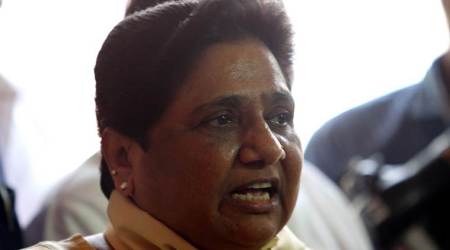 Naseemuddin Siddiqui
Naseemuddin Siddiqui
In the less than six months after the UP assembly elections, which left the BSP with it lowest representation since 1991 at 19 MLAs in a house of 403, more than three dozen prominent leaders have either been expelled or left the party. These include senior leaders such as former MPs and candidates who had lost in the assembly elections.
Among the most prominent are former BSP general secretary Naseemuddin Siddiqui, former state president Indrajeet Saroj, former MP Ashok Kumar Rawat, MLC Jaiveer Singh and former minister Kamlakant Gautam, besides 32 assembly candidates including 10 former MLAs. At least a dozen of them, including five assembly candidates in Lucknow district, have alleged that they were being asked to donate Rs 20 lakh to the party. The BSP has denied the allegations.
The expulsions and desertions after the assembly elections were, in fact, the second phase of large-scale depletion of the party. The first phase had begun after the BSP had failed to win any seats in the 2014 Lok Sabha elections. Those who left the party between 2014 and 2017 included senior leaders such as Swami Prasad Maurya, Brajesh Pathak, Jugul Kishore and R K Chaudhary. Many of them joined the BJP, which won more than three-fourths of the assembly this year.
Those who have left say the BSP is “nearing its end”. “Leaders like me being expelled shows that limits have been crossed,” said Ashok Rawat, who was the MP from Misrikh for two terms between 2004 and 2014. “I worked for the party for 15 years and I was expelled just because I could not fulfil the party’s demand of money.”
Those who remain in the BSP as senior functionaries, on the other hand, remain hopeful of the party’s revival. “The party will not be affected by such setbacks,” said UP BSP president Ram Achal Rajbhar. “Everyone knows it has become a practice for those leaving the party to allege that they were being asked to give money. There is no truth in it.”
BSP chief Mayawati’s campaign to revive BSP, starting from Meerut on September 18, will test the party as many leaders have shown a reluctance to devote their resources to public meetings with elections still years away, sources said. “The Lok Sabha polls are about two years away. Candidates who contested the assembly elections this year are not interested in investing their resources in rallies so soon,” said a leader from western UP. “These candidates mainly make arrangements to transport party supporters to rally venues.”
In an attempt to regain lost ground, Mayawati had resigned from Rajya Sabha in July, accusing the BJP of not allowing her to speak on Dalit issues. She announced she would hold meetings with party workers in most divisions of the state on the 18th of every month. The earlier plan was to hold these public meetings at the ground opposite Subharti University in Meerut, where party supporters from Meerut and Saharanpur divisions would have attended. Now, the plan has been expanded to include supporters from Moradabad division.
BSP coordinator Naresh Gautam said the party has set itself a target of gathering 5,000 persons each from 70 assembly seats in 15 districts. In the assembly elections, the party had won only one of these 70 seats: Dholana of Hapur district.

